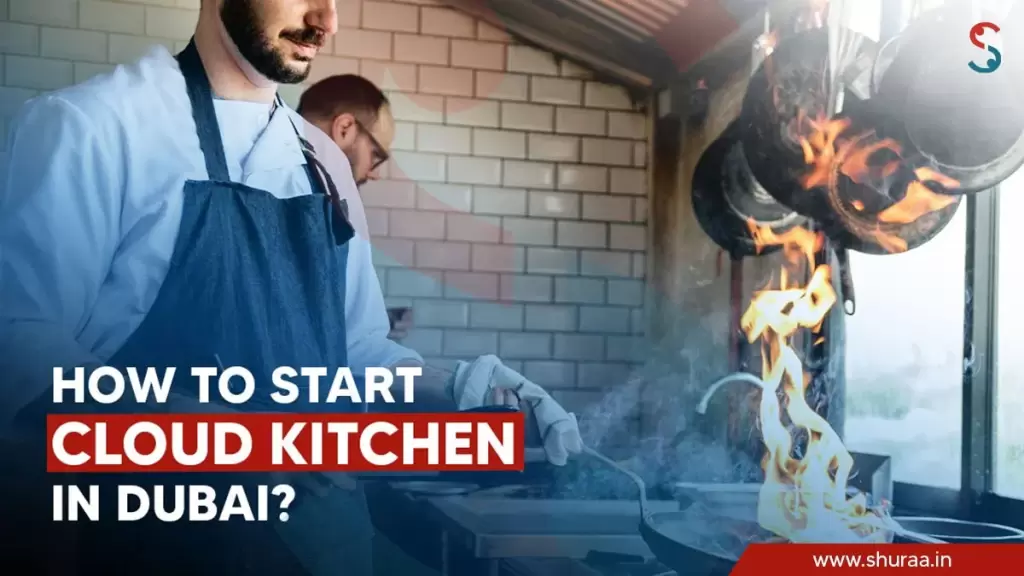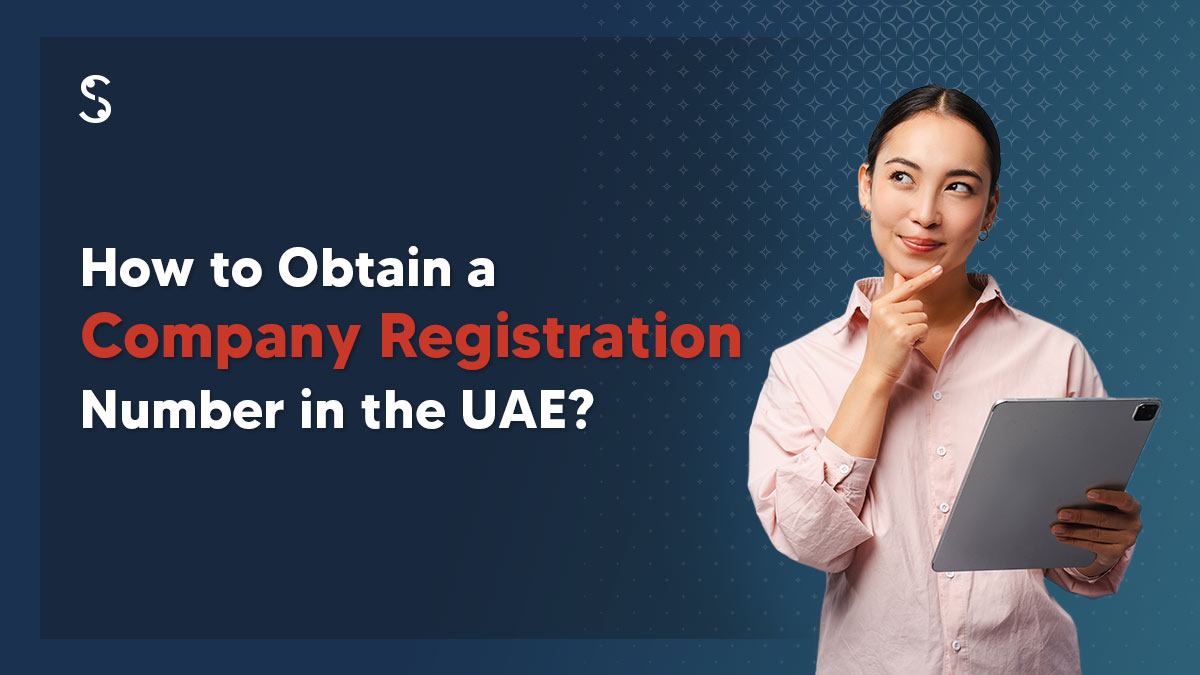Thinking about how to start a cloud kitchen in Dubai? With the city's Succeeding food delivery market and increasing demand for quick, delicious meals, now is the perfect time to dive into this innovative business model. Cloud kitchens, also known as ghost kitchens, operate without a dine-in space, focusing entirely on delivery, significantly reducing overhead costs.
Did you know that Dubai’s food delivery market is projected to grow by over 8% annually? This makes it an ideal hotspot for cloud kitchens to thrive. Whether you're an aspiring chef, a seasoned restaurateur, or an entrepreneur looking to dive into the F&B sector, this guide will walk you through every step to start a cloud kitchen in Dubai and turn your culinary dream into a reality.
What is a Cloud Kitchen?
A Cloud Kitchen, a virtual kitchen, is a delivery-only restaurant model without a traditional dine-in space. It focuses solely on preparing food for delivery and leverages online platforms and delivery services to reach customers. Suppose you're looking to start a cloud kitchen in Dubai.
In that case, you'll need to focus on key elements like obtaining the correct licenses, finding a cost-effective kitchen space, partnering with food delivery platforms, and maintaining a strong online presence to attract customers.
Is It Profitable to Start a Cloud Kitchen in Dubai?
Yes, it is highly profitable to start a cloud kitchen in Dubai, thanks to the city's quick food delivery market and supportive business environment. Here’s why this business model thrives in Dubai:
1. Lower Operating Costs
Cloud kitchens eliminate the need for dine-in facilities, significantly reducing rental, utility, and staffing costs. This lets business owners focus on efficient kitchen operations and high-quality food preparation.
2. Rising Demand for Food Delivery
Dubai's fast-paced lifestyle has increased the demand for food delivery services. Partnering with platforms like Deliveroo, Talabat, and Zomato helps reach a large customer base without needing a physical restaurant.
3. Diverse Culinary Market
Dubai’s multicultural population creates opportunities to cater to various tastes and preferences. When you set up a cloud kitchen in Dubai, you can explore specialised cuisines, such as vegan, gluten-free, and international dishes, to meet specific market demands.
4. Scalability and Flexibility
One significant advantage of a cloud kitchen is the ability to operate multiple virtual restaurant brands under one roof. This flexibility allows you to experiment with different menus and expand your offerings with minimal additional costs.
5. Streamlined Setup Process
Starting a cloud kitchen in Dubai is straightforward, especially with the guidance of business setup consultants like Shuraa India. We help you quickly navigate trade licenses, Dubai Municipality approvals, and food safety regulations.
Key Challenges:
The key challenges are as follows:- High Competition: A well-planned marketing and branding strategy is crucial to stand out.
- Delivery Fees: Delivery platforms charge commissions that can impact your margins.
- Strict Compliance: Following food safety and hygiene standards is mandatory to avoid fines.
To start a cloud kitchen in Dubai, focus on innovation, streamlined operations, and partnerships with reliable delivery platforms. With careful planning, this business model offers excellent potential for growth and profitability in Dubai’s thriving food market.
Benefits of Starting a Cloud Kitchen in Dubai
The cloud kitchen format offers many opportunities to Indian entrepreneurs while keeping operating costs under control. Obtaining a cloud kitchen license in Dubai has some benefits.
1. Cost-Effective Startup Model
Cloud kitchens have much-reduced startup expenses compared to typical brick-and-mortar restaurants. Moreover, they require less space, fewer employees, and fewer extras like signage and advertising.
2. Minimised Risk for New Concepts
Cloud kitchens can also provide a low-risk platform for existing restaurants to test new foods or concepts before introducing them in their physical locations.
3. Diverse Expansion Potential
A cloud kitchen allows restaurateurs to try out alternative concepts and forms. It has inspired many food delivery business models, including multi-brand kitchens, aggregator-managed cloud kitchens, and co-working spaces.
4. Enhanced Menu Flexibility
Unlike a restaurant, the menu in a cloud kitchen can be changed more quickly. There's no need to spend time and money replacing physical menus when you can change them digitally in minutes. Besides, you can quickly adjust the menu if a specific item is insufficiently in stock.
5. Streamlined Operational Efficiency
Cloud kitchens are more popular than restaurants. Restaurants find catering to dine-in guests and delivery requests during busy hours challenging. On the other hand, the cloud kitchen business is more efficient because it focuses on the delivery-only strategy. The delivery process is much quicker and simpler.
Types of Cloud Kitchen License in UAE
Depending on the specific operations and jurisdiction, several licenses are required to establish a cloud kitchen in the UAE. Here are the main types:
Food License
- Issued by: Dubai Municipality or equivalent authority in other emirates.
- Purpose: Ensures compliance with food safety and hygiene regulations.
- Requirements:
- Approval of kitchen layout.
- Proper ventilation and waste management systems.
- Adherence to food storage and preparation standards.
Trade License
- Issued by: Department of Economic Development (DED) or free zone authorities.
- Purpose: Allows the operation of the cloud kitchen business.
- Types:
- Mainland Trade License: For operating in the UAE mainland.
- Free Zone Trade License: For operating within a specific free zone.
Foodstuff Supply License
- Issued by: Municipality or DED.
- Purpose: Permits the purchase, storage, and sale of food supplies.
Delivery Service Permit
- Issued by: Roads and Transport Authority (RTA) or relevant authorities.
- Purpose: Required if the cloud kitchen manages its delivery fleet.
- Requirements: Vehicle registration and adherence to delivery safety guidelines.
Central Production Unit License (Optional)
- Issued by: Municipality or Free Zone Authority.
- Purpose: For kitchens producing large quantities of food for multiple brands or outlets.
Halal Certification (if applicable)
- Issued by: UAE Halal Certification Authority.
- Purpose: Ensures food products comply with halal standards.
Additional Permits and Approvals
Additional permits and approvals are as follows:- NOC from Civil Defense: For fire safety compliance.
- Signage Permit: This is for advertising the cloud kitchen.
- Third-party Aggregator Registration: To list your kitchen on platforms like Deliveroo or Talabat.
Key Considerations
The key considerations are as follows:- The location of the kitchen (mainland or free zone) affects the type of trade license required.
- Some free zones, such as Dubai Production City or Dubai Silicon Oasis, specialise in F&B businesses and offer dedicated packages for cloud kitchens.
How to start a cloud kitchen in Dubai: Step-by-Step in 2025
To start a cloud kitchen in Dubai, follow these detailed steps to ensure a smooth and legal process:Step 1: Conduct Market Research
Before you start a cloud kitchen in Dubai, it’s essential to understand the market. Research the types of food people are ordering, the delivery trends, and what your competitors are offering.
This will help you decide what kind of menu to create and how to stand out. You can gather this information through online surveys, social media, or analysing popular food delivery apps in Dubai.
Step 2: Choose a Business Structure
To start a cloud kitchen in Dubai, choose a business structure that fits your goals. Here are some options:- Sole Proprietorship: Perfect if you plan to run the kitchen independently.
- LLC (Limited Liability Company): Good if you want to share ownership or limit your liability.
- Free Zone Company: Ideal for international customers and offers tax benefits.
Step 3: Select a Location
When you start a cloud kitchen in Dubai, location still matters, even though you won’t have a physical restaurant. Look for a spot close to high-demand areas for food delivery.
You can rent a commercial kitchen or partner with a shared kitchen space. Make sure the location has the proper licenses and is accessible for delivery drivers.
Step 4: Obtain Necessary Licenses
You need a few essential licenses to set up a cloud kitchen in Dubai legally. These usually include:- Food License: Issued by the Dubai Municipality.
- Trade License: Issued by the Department of Economic Development (DED).
- Food Safety Certification: To make sure your kitchen meets hygiene standards.
Step 5: Register Your Business
Once you have your licenses, you must register your cloud kitchen with the authorities in Dubai. You’ll provide your business name, structure, and ownership details. Make sure your business name is unique and complies with Dubai’s naming rules.
Step 6: Design and Equip the Kitchen
The kitchen layout is crucial for a cloud kitchen. It should be equipped with cooking, storing, and packaging appliances.
Invest in high-quality kitchen tools and organise everything to cook efficiently. Dubai regulations mandate that your kitchen must meet hygiene and safety standards.
Step 7: Create a Menu and Pricing Strategy
Your menu is key to attracting customers when starting a cloud kitchen. Keep it simple yet appealing. Offer popular dishes, but avoid having too many items that complicate kitchen operations.
Pricing should cover food costs and delivery charges while giving you a good profit margin. Make sure your pricing is competitive but still reflects the quality of your food.
Step 8: Partner with Delivery Platforms
You must partner with delivery platforms to get your food out there. Major apps like Uber Eats, Zomato, and Talabat can help you reach a wider audience.
These platforms handle the logistics, allowing you to focus on food preparation. You can also consider creating your delivery system if you have the budget.
Step 9: Comply with Health and Safety Standards
Dubai has strict health and safety regulations. Therefore, following all food safety guidelines is essential when starting a cloud kitchen in Dubai.
This includes keeping the kitchen clean, storing food properly, and ensuring hygiene. The Dubai Municipality will inspect you to ensure you meet these standards, so train your staff correctly.
Step 10: Market Your Cloud Kitchen
To get customers when you start a cloud kitchen in Dubai, you need to market your business. Use social media platforms like Instagram and Facebook to show off your food and engage with your audience.
You can also use Google ads or partner with food bloggers to get the word out. Offering discounts or special deals is a good way to attract first-time customers.
Step 11: Hire Staff
Even though you won’t have customers dining in, you still need a strong team. Hire chefs, kitchen assistants, and delivery staff to ensure everything runs smoothly.
The quality of food and service is essential for getting repeat customers, so pick your staff carefully. You can also consider working with a third-party delivery service to handle the delivery side.
Step 12: Maintain Financial Records
Managing your finances is crucial when starting a cloud kitchen in Dubai. Track all expenses, including rent, salaries, food ingredients, and delivery commissions.
Having an accountant or using accounting software can help you stay organised and ensure you’re making a profit. Accurate financial records will also help with tax compliance.
By following these simple steps, you can successfully start a cloud kitchen in Dubai and take advantage of the city's growing demand for food delivery. Stay compliant with regulations, keep your operations efficient, and market your business well to ensure long-term success.
Documents required to start a cloud kitchen in Dubai
Below are the documents required to start a cloud kitchen in Dubai, UAE:- Emirates ID
- A valid Passport
- Passport size photographs
- Business plan
- Trade Name Approval
- Food License
- Health and Safety Inspection Approval
Consulting with a local business setup consultant or legal professional is recommended to ensure you meet all the requirements for your specific case.
Cost to Start a Cloud Kitchen in Dubai, UAE
Starting a cloud kitchen in Dubai typically costs between AED 75,000* and AED 100,000*, including licensing and other associated expenses. The exact cost depends on factors such as the kitchen's size, the services offered, and the license type.
The cloud kitchen license costs approximately AED 18,500*, including the visa. Keep in mind that physical space is mandatory, and the cost may vary depending on the size and capacity of the kitchen.
Contact our business consultants for an accurate estimate of the costs of opening a cloud kitchen in the UAE.
Start a Cloud Kitchen in Dubai with Shuraa India!
In conclusion, starting a cloud kitchen in Dubai is an excellent opportunity due to the city’s growing demand for food delivery. With lower operating costs and the ability to scale quickly, cloud kitchens allow entrepreneurs to experiment with different food concepts. Following the steps outlined in this guide and ensuring compliance with local laws, you can set up a successful cloud kitchen in Dubai’s thriving food market.
Shuraa India can make the process easier by providing expert guidance on obtaining the necessary licenses, navigating Dubai’s regulations, and ensuring a smooth setup. Their team can help you choose the proper business structure, secure the appropriate permits, and handle all legal requirements so you can confidently focus on growing your cloud kitchen business.








